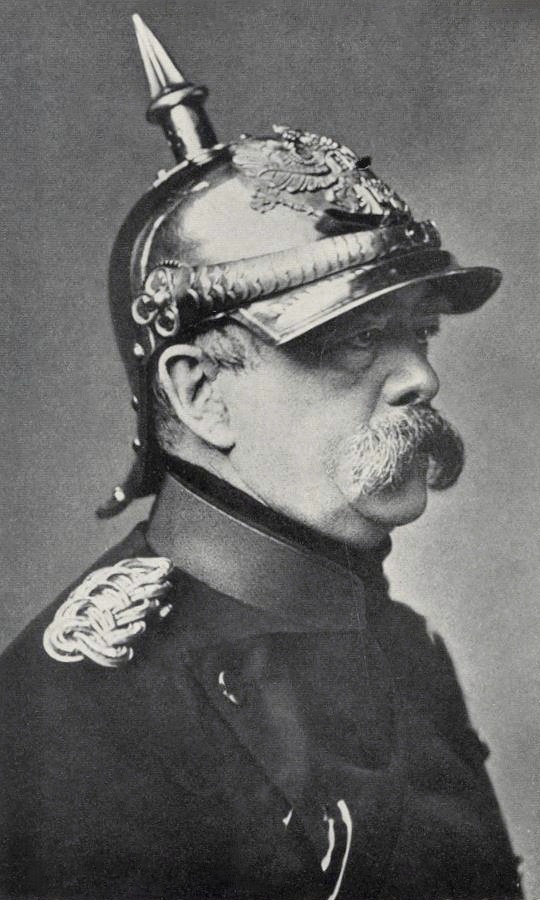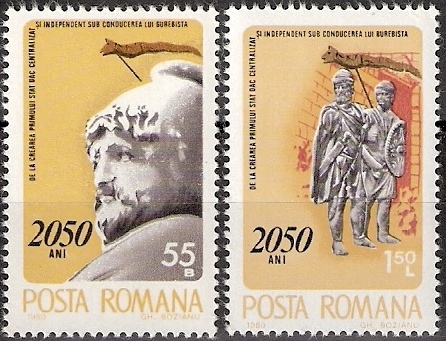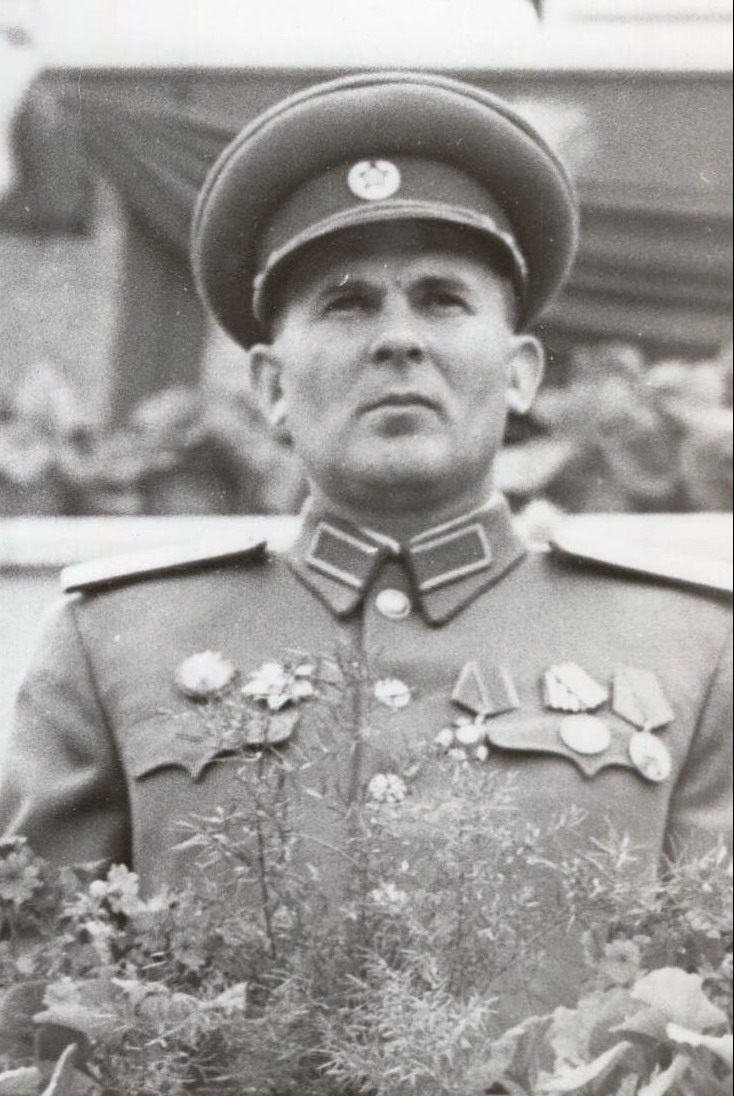|
Patriotic Guards (Romania)
The Patriotic Guards () were paramilitary formations in the Socialist Republic of Romania from 1968 to 1989. The Patriotic Guards were formed under Nicolae Ceaușescu as an armed force under the direct control of the Romanian Communist Party to provide additional defence and support in the event of an invasion of Romania. Membership included both men and women and adolescents as young as middle school age, with a peak of approximately 700,000 members across Romania in 1989. History The Patriotic Guards were formed in 1968 after Nicolae Ceaușescu, the Romanian Communist Party General Secretary and State Council President, delivered the 21 August Bucharest speech condemning the Warsaw Pact invasion of Czechoslovakia during the Prague Spring, conducted the Soviet Union, the Polish People's Republic, the People's Republic of Bulgaria, and the Hungarian People's Republic. Romania was a member of the Warsaw Pact but did not participate in the invasion as Ceaușescu tried to p ... [...More Info...] [...Related Items...] OR: [Wikipedia] [Google] [Baidu] |
Socialist Republic Of Romania
The Socialist Republic of Romania (, RSR) was a Marxism–Leninism, Marxist–Leninist One-party state, one-party socialist state that existed officially in Romania from 1947 to 1989 (see Revolutions of 1989). From 1947 to 1965, the state was known as the Romanian People's Republic (, RPR). The country was an Eastern Bloc state and a member of the Warsaw Pact with a dominant role for the Romanian Communist Party enshrined in :Template:RomanianConstitutions, its constitutions. Geographically, RSR was bordered by the Black Sea to the east, the Soviet Union (via the Ukrainian Soviet Socialist Republic, Ukrainian and Moldavian Soviet Socialist Republic, Moldavian SSRs) to the north and east, Hungarian People's Republic, Hungary and Socialist Federal Republic of Yugoslavia, Yugoslavia (via Socialist Republic of Serbia, SR Serbia) to the west, and People's Republic of Bulgaria, Bulgaria to the south. As World War II ended, Kingdom of Romania, Romania, a former Axis powers, Axis membe ... [...More Info...] [...Related Items...] OR: [Wikipedia] [Google] [Baidu] |
Political Line
Politics () is the set of activities that are associated with making decisions in groups, or other forms of power relations among individuals, such as the distribution of status or resources. The branch of social science that studies politics and government is referred to as political science. Politics may be used positively in the context of a "political solution" which is compromising and non-violent, or descriptively as "the art or science of government", but the word often also carries a negative connotation.. The concept has been defined in various ways, and different approaches have fundamentally differing views on whether it should be used extensively or in a limited way, empirically or normatively, and on whether conflict or co-operation is more essential to it. A variety of methods are deployed in politics, which include promoting one's own political views among people, negotiation with other political subjects, making laws, and exercising internal and external for ... [...More Info...] [...Related Items...] OR: [Wikipedia] [Google] [Baidu] |
Ilie Ceaușescu
Ilie Ceaușescu (8 June 1926 – 1 October 2002) was a Romanian army general and communist politician who was Deputy Defence Minister of Communist Romania during the rule of his older brother, Nicolae Ceaușescu. Ilie's military and political career was helped by Nicolae; between 1980 and 1989, he was a member of the Central Committee of the Romanian Communist Party, and, in 1982-1989, he was Deputy Minister of Defense. Ilie Ceaușescu was also a historian, and he influenced Nicolae in establishing protochronism as Romania's official historiography and an important part of the national propaganda system. For instance, he claimed that the Romanian people have been always the same since time immemorial, being very little influenced by other people ( Romans, Slavs, Mongols) etc.: After the Romanian Revolution and the execution of Nicolae Ceaușescu, in 1990 it was claimed that both Ilie and Marin Ceaușescu were involved in a series of transactions between the United States and ... [...More Info...] [...Related Items...] OR: [Wikipedia] [Google] [Baidu] |
Militarized
Militarism is the belief or the desire of a government or a people that a state should maintain a strong military capability and to use it aggressively to expand national interests and/or values. It may also imply the glorification of the military and of the ideals of a professional military class and the "predominance of the armed forces in the administration or policy of the state" (see also: stratocracy and military junta). Militarism has been a significant element of the imperialist or expansionist ideologies of many nations throughout history. Notable ancient examples include the Assyrian Empire, the Greek city state of Sparta, the Roman Empire, the Aztec nation, and the Mongol Empire. Examples from modern times include the Ottoman Empire, the Kingdom of Prussia/German Empire/Nazi Germany, the British Empire, the Habsburg monarchy, the First French Empire, the Zulu Kingdom, the Empire of Japan, the Kingdom of Italy under Benito Mussolini, Israel, North Korea, and the Russi ... [...More Info...] [...Related Items...] OR: [Wikipedia] [Google] [Baidu] |
National Communism In Romania
National communism in Romania is a term referring to a form of nationalism promoted in the Socialist Republic of Romania between the early 1960s and 1989; the term itself was not used by the Communist regime. Having its origins in Gheorghe Gheorghiu-Dej's political emancipation from the Soviet Union, it was greatly developed by Nicolae Ceaușescu, who began in 1971, through his July Theses manifesto, a national cultural revolution. Part of the national mythology was Nicolae Ceaușescu's cult of personality and the idealization of Romanian history, known in Romanian historiography as protochronism. This nationalistic ideology was built upon a mixture of both Marxist–Leninist principles and doctrines of Romanian nationalism. The driving force behind the ideology of national communism was the belief that Romanians are an isolated "Latin island" in Eastern Europe who have endlessly and unanimously fought off external forces throughout two thousand years to achieve unity and in ... [...More Info...] [...Related Items...] OR: [Wikipedia] [Google] [Baidu] |
Political Repression
Political repression is the act of a state entity controlling a citizenry by force for political reasons, particularly for the purpose of restricting or preventing the citizenry's ability to take part in the political life of a society, thereby reducing their standing among their fellow citizens. Repression tactics target the citizenry who are most likely to challenge the political ideology of the state in order for the government to remain in control. In autocracies, the use of political repression is to prevent anti-regime support and mobilization. It is often manifested through policies such as human rights violations, surveillance abuse, police brutality, kangaroo courts, imprisonment, involuntary settlement, stripping of citizen's rights, lustration, and violent action or terror such as murder, summary executions, torture, forced disappearance, and other extrajudicial punishment of political activists, dissidents, or the general population. Direct repression tact ... [...More Info...] [...Related Items...] OR: [Wikipedia] [Google] [Baidu] |
Western Bloc
The Western Bloc, also known as the Capitalist Bloc, the Freedom Bloc, the Free Bloc, and the American Bloc, was an unofficial coalition of countries that were officially allied with the United States during the Cold War (1947–1991). While the NATO member states, in Western Europe and Northern America, were pivotal to the bloc, it included many other countries, in the broader Asia-Pacific region, the Middle East, Latin America, and Africa with histories of anti-Soviet, anti-communist and, in some cases anti-socialist, ideologies and policies. As such, the bloc was opposed to the political systems and foreign policies of communist countries, which were centered on the Soviet Union, other members of the Warsaw Pact, and usually the People's Republic of China. The name "Western Bloc" emerged in response to and as the antithesis of its communist counterpart, the Eastern Bloc. Throughout the Cold War, the governments and the Western media were more inclined to refer to themse ... [...More Info...] [...Related Items...] OR: [Wikipedia] [Google] [Baidu] |
Isolationism
Isolationism is a term used to refer to a political philosophy advocating a foreign policy that opposes involvement in the political affairs, and especially the wars, of other countries. Thus, isolationism fundamentally advocates neutrality and opposes entanglement in military alliances and mutual defense pacts. In its purest form, isolationism opposes all commitments to foreign countries, including treaties and trade agreements. In the political science lexicon, there is also the term of " non-interventionism", which is sometimes improperly used to replace the concept of "isolationism". "Non-interventionism" is commonly understood as "a foreign policy of political or military non-involvement in foreign relations or in other countries' internal affairs". "Isolationism" should be interpreted more broadly as "a foreign policy grand strategy of military and political non-interference in international affairs and in the internal affairs of sovereign states, associated with trade an ... [...More Info...] [...Related Items...] OR: [Wikipedia] [Google] [Baidu] |
Romanian Patriotic Guards Training 3
Romanian may refer to: *anything of, from, or related to the country and nation of Romania **Romanians, an ethnic group **Romanian language, a Romance language ***Romanian dialects, variants of the Romanian language **Romanian cuisine, traditional foods **Romanian folklore *'' The Romanian: Story of an Obsession'', a 2004 novel by Bruce Benderson *''Românul ''Românul'' (, meaning "The Romanian"; originally spelled ''Romanulu'' or ''Românulŭ'', also known as ''Romînul'', ''Concordia'', ''Libertatea'' and ''Consciinti'a Nationala''), was a political and literary newspaper published in Bucharest, Ro ...'' (), a newspaper published in Bucharest, Romania, 1857–1905 See also * * {{disambiguation Language and nationality disambiguation pages ... [...More Info...] [...Related Items...] OR: [Wikipedia] [Google] [Baidu] |
High School
A secondary school, high school, or senior school, is an institution that provides secondary education. Some secondary schools provide both ''lower secondary education'' (ages 11 to 14) and ''upper secondary education'' (ages 14 to 18), i.e., both levels 2 and 3 of the ISCED scale, but these can also be provided in separate schools. There may be other variations in the provision: for example, children in Australia, Hong Kong, and Spain change from the primary to secondary systems a year later at the age of 12, with the ISCED's first year of lower secondary being the last year of primary provision. In the United States, most local secondary education systems have separate middle schools and high schools. Middle schools are usually from grades 6–8 or 7–8, and high schools are typically from grades 9–12. In the United Kingdom, most state schools and privately funded schools accommodate pupils between the ages of 11 and 16 or between 11 and 18; some UK privat ... [...More Info...] [...Related Items...] OR: [Wikipedia] [Google] [Baidu] |
Curriculum
In education, a curriculum (; : curriculums or curricula ) is the totality of student experiences that occur in an educational process. The term often refers specifically to a planned sequence of instruction, or to a view of the student's experiences in terms of the educator's or school's instructional goals. A curriculum may incorporate the planned interaction of pupils with instructional content, materials, resources, and processes for evaluating the attainment of educational objectives. Curricula are split into several categories: the explicit, the implicit (including the hidden), the excluded, and the extracurricular.Kelly, A. V. (2009). The curriculum: Theory and practice (pp. 1–55). Newbury Park, CA: Sage.Braslavsky, C. (2003). The curriculum. Curricula may be tightly standardized or may include a high level of instructor or learner autonomy. Many countries have national curricula in primary education, primary and secondary education, such as the United Kingdom's Nationa ... [...More Info...] [...Related Items...] OR: [Wikipedia] [Google] [Baidu] |
Romanian People's Army
The Army of the Socialist Republic of Romania () was the army of the Socialist Republic of Romania (1965 to 1989), previously known as the Army of the Romanian People's Republic () during the Romanian People's Republic (1947 to 1965). Following the Romanian Revolution in 1989, it was renamed to the Romanian Armed Forces. It consisted of the Ground Forces, the Navy, and the Air Force. History In 1944, the Red Army invaded Romania in the Second Jassy–Kishinev Offensive, Jassy-Kishinev Offensive, causing the overthrow of Ion Antonescu's Nazi Germany, Nazi-aligned regime via a 1944 Romanian coup d'état, Royal coup. In 1945, new military regulations were developed based on those of the Red Army and in 1946, Romania came completely under the influence of the Soviet Union. It became part of the Eastern Bloc. The military regulations were finalized in 1949. Like all other socialist states, the Army was subjected to the rule of the Romanian Communist Party, whose general secretary was ... [...More Info...] [...Related Items...] OR: [Wikipedia] [Google] [Baidu] |






